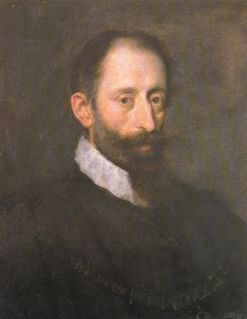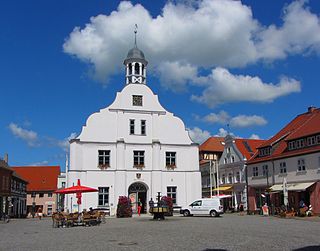This page is based on this
Wikipedia article Text is available under the
CC BY-SA 4.0 license; additional terms may apply.
Images, videos and audio are available under their respective licenses.

German Romanticism was the dominant intellectual movement of German-speaking countries in the late 18th and early 19th centuries, influencing philosophy, aesthetics, literature and criticism. Compared to English Romanticism, the German variety developed relatively late, and, in the early years, coincided with Weimar Classicism (1772–1805). In contrast to the seriousness of English Romanticism, the German variety of Romanticism notably valued wit, humour, and beauty.

Neuwied is a town in the north of the German state of Rhineland-Palatinate, capital of the District of Neuwied. Neuwied lies on the east bank of the Rhine, 12 km northwest of Koblenz, on the railway from Frankfurt am Main to Cologne. The town has 13 suburban administrative districts: Heimbach-Weis, Gladbach, Engers, Oberbieber, Niederbieber, Torney, Segendorf, Altwied, Block, Irlich, Feldkirchen, Heddesdorf and Rodenbach. The largest is Heimbach-Weis, with approximately 8000 inhabitants.

The Philipps University of Marburg was founded in 1527 by Philip I, Landgrave of Hesse, which makes it one of Germany's oldest universities and the oldest Protestant university in the world. It is now a public university of the state of Hesse, without religious affiliation. The University of Marburg has about 25,000 students and 7,500 employees and is located in Marburg, a town of 72,000 inhabitants, with university buildings dotted in or around the town centre. About 12% of the students are international, the highest percentage in Hesse. It offers an International summer university programme and offers student exchanges through the Erasmus programme.

William V, called the Pious, was Duke of Bavaria from 1579 to 1597.

For people with the surname, see Wolgast (surname).
The monarchy of Württemberg came to an end in 1918 along with the rest of the monarchies that made up the German Empire. The last member of the dynasty to reign as King of Württemberg was William II.

Theodor Friedrich Ludwig Nees von Esenbeck was a German botanist and pharmacologist who was a native of Schloss Reichenberg in Reichelsheim (Odenwald). He was a younger brother to naturalist Christian Gottfried Daniel Nees von Esenbeck (1776–1858).

Margrave William of Baden-Baden was regent of Baden-Baden between 1621 and 1677.
Fürst von der Leyen und zu Hohengeroldseck was a German noble title of the House of Leyen.
Karl Wilhelm may refer to:

Marshal Forwards is a 1932 German historical war film directed by Heinz Paul and starring Paul Wegener, Traute Carlsen and Hans Graf von Schwerin.
Mikosch, the Pride of the Company is a 1958 West German comedy film directed by Rudolf Schündler and starring Gunther Philipp, Walter Gross and Kurt Großkurth. It was followed by a 1959 sequel Mikosch of the Secret Service.
The Count of Charolais is a 1922 German silent historical film directed by Karl Grune and starring Eva May, William Dieterle and Eugen Klöpfer.
The Principality of Waldeck and Pyrmont was abolished in 1918 during the German Revolution, following the defeat of the Central Powers in the First World War. The succession, as with most former states of the Holy Roman Empire, was semi-salic, with the nearest female kinswoman of the last male inheriting the crown upon extinction of the dynasty in the male line. The current pretender to the throne and head of the house is Wittekind, Prince of Waldeck and Pyrmont, grandson of Friedrich, the last ruling prince.









